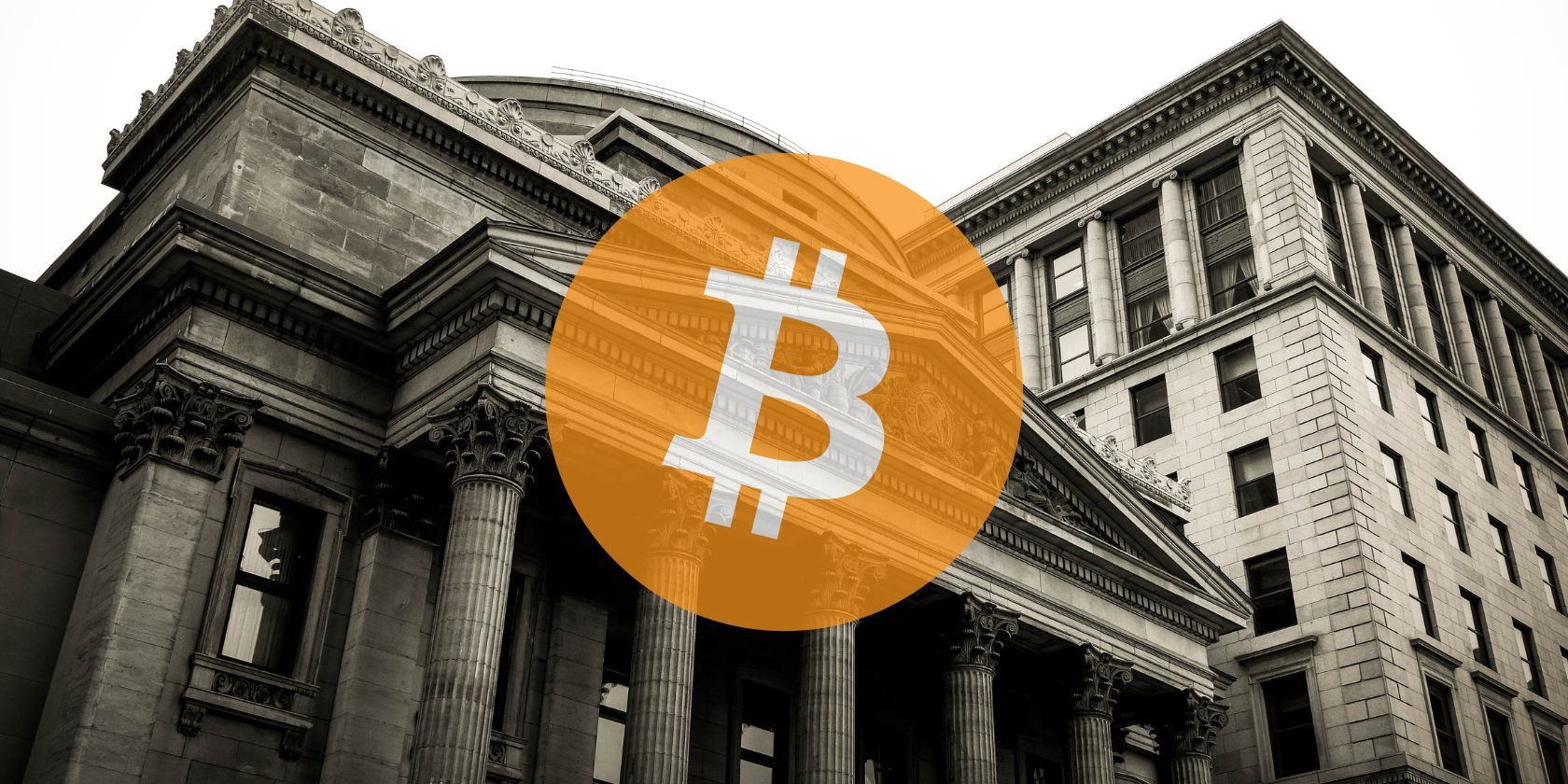Many new concepts and ideas have arisen through the boom of the cryptocurrency industry, one of which is the issuance of CBDCs.
However, CBDCs have garnered a good deal of criticism from skeptics who believe they are bad news. So, what arguments are being made against CBDCs, and why are so many people against them?
What Are CBDCs?
Before getting into the arguments against CBDCs, let's quickly run over what they are and how they work.
A CBDC (central bank digital currency) is a digital currency issued by a nation's central bank. In most cases, a CBDC will stand as an entirely digital version of a country's pre-existing legal tender (such as USD and GBP). There have been talks of various countries launching a CBDC, including a US-dollar CBDC, but what's the goal here?
A couple of modern-day factors drive the desire for CBDCs, one of the most prominent being the declining use of physical money. Today, most of us use our payment cards or contactless payment on our smart devices to purchase goods and services. Many vendors now only accept card or smartphone payments, a trend that became widespread during and after the COVID-19 pandemic.
Another factor fueling the pro-CBDC side is the limitations some people face when accessing financial services. Even in our modern age and in technologically advanced countries, millions of people still don't have a bank account. CBDCs could help such individuals avoid hefty transfer fees, especially those who regularly send money abroad.
But CBDCs are by no means perfect, and many are worried about their issuance and how this will affect both the economy and individuals.
So, let's get into the key arguments against CBDCs.
1. Less Anonymity
A luxury that all crypto users can enjoy is an increased level of anonymity. When you conduct a cryptocurrency transaction, only your wallet address is displayed on the blockchain. On the other hand, when you conduct a typical bank transfer, the recipient and bank can see your name, how much you transfer, and where the money goes. While crypto transactions are technically pseudonymous, not anonymous (as your wallet could be used to uncover your identity), it is overall the better option regarding privacy.
But with CBDCs, much of this anonymity is taken away. With typical cryptocurrencies, every transaction a coin goes through is logged on its blockchain. Similarly, whenever a person uses a CBDC in a transaction, it will be logged by the central bank that issued it. This means that the central bank can view every single transaction you make, where you made it, and how much the transaction was worth.
CBDCs would also need to be regulated and monitored by banks and governments, who may want some way to identify individuals, especially in legal cases. In such a scenario, your transactions could be instantly traced back to your true identity, which poses another privacy risk.
2. Patchy Monetary Policies
For the currencies currently issued by central banks, policies have been implemented to influence or hedge against various factors, such as interest rates and inflation. However, when CBDCs are issued on a wide scale, such policies will also need to be implemented.
But because traditional cash and CBDCs are not the same, there will likely be a rift between the policies applied to the former and to the latter. Moreover, if a given central bank doesn't have the expertise to apply adequate policies to its CBDCs, or has its sights set on the wrong goals, an array of problems may follow. For instance, if a bank doesn't know how to hedge against CBDC inflation adequately, the cost of living may soar, possibly even leading to hyperinflation.
Alternatively, a bank or government may simply choose to boost the circulation of a given CBDC, leading to increased inflation. This may be good for them, but it would likely cause average individuals to struggle. Or, a bank may quickly boost or lower CBDC interest rates as and when they desire. Again, this level of control could prove incredibly detrimental to the economy.
3. Elimination of Physical Cash
Many of us already use payment cards and smart devices to make payments most of the time, but the introduction of entirely virtual currencies may result in the total elimination of physical cash. While many may see this as a plus, as physical cash can be more easily lost or damaged and isn't accepted by many vendors, removing this form of payment entirely may result in some big problems.
This is mainly due to digital cash's reliance on technology. While using physical money requires a simple hand-to-hand exchange, payment cards and smart devices cannot function without various technical protocols, such as the internet, NFC (near-field communication), and RFID (radio-frequency identification). If one of these technologies runs into problems, this could directly affect the payments they facilitate.
Say, for instance, a digital wallet app experienced a major technical issue, such as a hack or crash. This could, in turn, affect all those who use the app to make payments on their smartphone. Some people may rely entirely on their digital wallet app and have no physical cash or payment card. In such a scenario, it would effectively become impossible to make payments.
4. Increased Surveillance
With decreased anonymity also comes increased surveillance, and this is another major concern associated with CBDCs. Government surveillance is already a point of contention among the general public, with the rise of technology causing concerns about whether we're all being watched.
An entirely virtual currency would likely give governments even more of a grasp on how you live your life. Cryptocurrencies are often highly private (some more than others), but a CBDC may come with a whole new set of rules on data collection, identity verification, and security measures. Depending on the country's laws, the government may want access to all data associated with a person's CBDC usage, regardless of sensitivity.
This isn't just a threat to anonymity but to a person's right to privacy in general. Of course, some countries may choose to keep their CBDCs highly private, but in this modern age, where surveillance is so common, it is unlikely that a government will grant the same privacy luxuries to CBDC users that crypto users enjoy. Moreover, it's hard to believe the government wouldn't get stuck into that juicy financial information on its citizens, just sitting there, easily accessible.
5. Increased Cybercrime
With the rise of the cryptocurrency industry has come the rise of crypto-related crimes. Billions in crypto have been stolen through malware attacks, phishing, blackmail, or otherwise. With the introduction of another entirely digital currency, criminals may flock to scam the thousands or millions of individuals using CBDCs in their day-to-day lives.
As people become accustomed to using CBDCs, there will certainly be learning curves and growing pains. And it's this shaky period that malicious actors may capitalize upon, exploiting peoples' lack of knowledge and any possible loopholes or flaws in the design of CBDCs. For instance, a CBDC may have a flaw in its code that opens up a security vulnerability. And when criminals become aware of the vulnerability, a malicious attack will follow.
For example, a criminal may impersonate a bank and convince an individual to transfer a large sum of funds. Alternatively, an unknowing victim may be conned into divulging sensitive data, giving the scammer access to their CBDC account. Many of us are familiar with traditional banking scams, but CBDCs will likely open new avenues for cybercriminals, possibly resulting in a wave of fraud and theft.
CBDCs May Pose an Issue for National Economies
Though many are excited about the introduction of CBDCs across the world, there is still much to be concerned about here. Privacy concerns, cyber threats, and practical hurdles may all make CBDCs more of a curse than a blessing, though we'll have to see whether this becomes the case as digital currencies are more widely issued and accepted worldwide.





